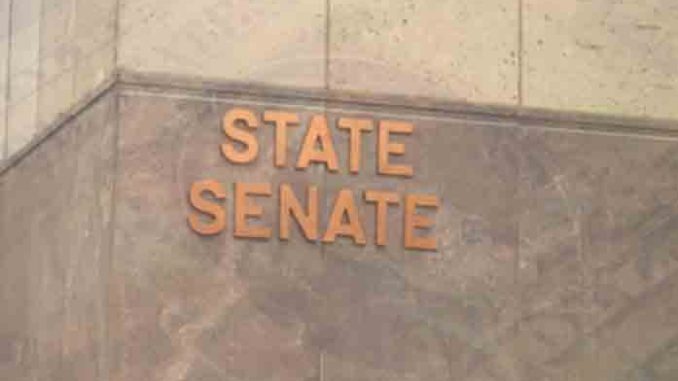
After holding the budget process hostage for weeks, Republican senators Boyer (LD20) and Carter (LD15) finally got their way with a compromise on their demand that the statute of limitation be extended for civil cases involving sexual abuse of children. It came in the form of an amendment by Mesnard (LD17) to Blackman (LD6)’s bill HB2466. For all intents and purposes this was a strike everything amendment, although it was not characterized as such. The whole text may be read by going to http://bit.ly/2HLaRuV
The reason that Boyer and Carter can get away with this reprehensible behavior is that the Republican majority in the senate is only 17-13. All 13 Democrats consistently and reliably vote against all controversial legislation that Republicans introduce and support. It takes 16 votes to pass legislation in the senate. If two Republicans decide to hold out, the legislation fails. Since Boyer and Carter behave in this manner undaunted, the only remedy for this situation is for voters in LD20 and LD15 to unelect these two individuals. Hopefully that will happen next cycle. A worse situation exists in the house where the Republicans have an even smaller 31-29 majority.
It is hard to understand why two senators would be so adamant about increasing the statute of limitation for cases involving sexual abuse of children. With very rare exceptions, the window for bringing law suits is two years. This is quite adequate, since wider windows make fairness difficult because memories fail, witnesses move or die, etc. Furthermore, if the wrongful action was egregious enough to warrant a law suit, two years is long enough to decide on a course of action. In the case of assaults on minors, we quite appropriately begin the two-year window when the victim reaches age 18, in case he/she was intimidated into remaining silent while still a minor. Even more important, lawsuits deal with monetary compensation and do nothing to provide real punishment to perpetrators. In the vast majority of cases, the defendant simply passes on the responsibility of monetary compensation to his insurance company and the insurance company passes it to the public in the form of higher premiums.
Extending this window another ten years serves no useful purpose other than to encourage frivolous lawsuits and make it more difficult for defendants to mount a proper defense, which in turn often leads to out-of-court settlements. This of course provides more business for lawyers. So, it is easy to understand why HB2466 is such a bonanza for lawyers of the ambulance chaser persuasion. What is not so clear is why or how insurance companies benefit from this. After all, we constantly hear them complain about those awful lawyers and how they want to reduce the size and frequency of liability claims. But this is all window dressing. In reality they love lawyers and pray for more and larger claims. To understand this, one must examine carefully how insurance companies operate.
Insurance companies operate in a manner similar to that of highway toll collectors, whose profits increase with increased traffic. Likewise, insurance companies make their money by keeping a certain percentage of the money that passes through their hands, in the form of incoming premiums and outgoing claims. The percentage that they keep is fairly constant. If too high, they risk regulator scrutiny and/or loss of market share. If too low, they may be leaving money on the table unnecessarily. With this in mind, it is easy to see that insurance companies increase their profits in only one of two ways. They either get a larger piece of the insurance business pie, or they increase the size of the pie. It is quite evident that HB2466 increases the size of the pie.
So, we come full circle, having created more questions than we have answered. We have seen that under the provisions of HB2466, perpetrators would receive little or no real punishment beyond that which was available under the previous statute. We have seen that alleged victims will not receive any additional benefit. Therefore, many questions remain, for example, what is it about this bill that is so compelling that two senators are willing to sabotage the budget process until the provisions of this bill are enacted? How does HB2466 improve the lives of voters in LD’s 20 and 15, whom these legislators have sworn to represent? Do Boyer and Carter have relatives or close friends in the legal and/or insurance industry? Are members of these industries major contributors to their campaigns? These are questions that the Republican voters of LD20 and LD15 should answer before the next primary election.
